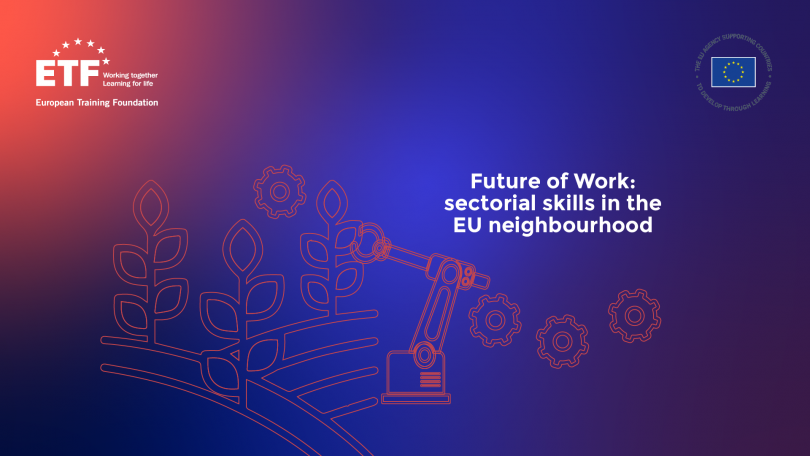
Future of Work: sectorial skills in the EU neighbourhood
Studies on agri-tech, agri-food, and automotive sectors in Israel, Morocco, and Turkey respectively, which explore the technological changes and innovations and the implication for skills, have been undertaken by the ETF applying an innovative methodology developed as part of the Skills Lab initiative launched in 2019.
Information from big data analysis and consultation with national stakeholders and actors, and a survey of innovative companies in the selected sectors are used to analyse the change process within the sectors and the skills that will be required. The case study approach gives critical insight into the selected sectors highlighting the need for a multi-stakeholder approach to manage change, including governments, businesses, social partners, civil society, research institutions, communities and education and training providers.
The ETF’s methodological tool can be applied in other countries and sectors either in traditional, low-tech sectors such as agriculture, or modern, high-tech sectors such as the automotive industry, energy, and transport. The studies form part of the ETF’s wider investigation in the EU’s neighbourhood on how global trends are impacting developing and transition economies and what actions are needed.
Highlights from the case studies
Agri-tech in Israel (see Report)
The Israeli case study shows that digitalisation is bringing increasing transformation to the water-scarce agricultural sector given the growing uptake of precision technologies (e.g. advanced irrigation, biotechnology, robotics, use of big data and artificial intelligence )by farms. A complex set of skills covering a variety of technologies and related competences is required. Practical training for high school students in companies and on-the-job training programmes in workplaces could be improved, as well as greater cooperation with employers for more job creation in the sector that would build on the country's existing strengths, such as the innovative ecosystem and culture and capacity for public and private investment.
Agri-food in Morocco ( see summary)
The agri-food sector in Morocco, which includes agriculture and food processing, is an important part of the country’s economy that is evolving in different stages. A limited number of farms are modernising and adopting digital and mechanical technologies, but most farms, which are smaller in size yet represent the bulk of the sector, are still working with traditional methods. The sector has the potential, with innovation and enhanced production quality, for accelerated growth and job creation in specialised professions. Although the sector has benefitted from government incentives, greater economic support and measures are needed to ensure the uptake of more modern farming methods, such as precision agricultural solutions, that are expensive for small farmers and challenge traditionalist approaches.
Automotive sector in Turkey (see summary)
The Turkish automotive sector has grown rapidly over the past ten years. Its manufacturing and trading segments contain different levels of skills. The former contains a higher level of skills overall that can be classified as medium to high. Ongoing automation is having a major impact on the sector and new profiles with broader and deeper skills (T-shaped) will be needed, shifting the occupational structure towards more highly skilled profiles. The workforce will have to upskill or reskill due to automation and other necessary technological changes to allow the sector to remain competitive at a global level. The workforce in the trading segment is largely low-skilled or medium-skilled for which ICT-related competencies are also increasingly needed and where challenges may arise due to the new learning required from workers with limited years of schooling and a lack of core skills. The development of long-term human resources strategies for the sector both in recruitment and skills management are needed for the industry in cooperation with vocational schools, universities, academia, and industry partnerships to ensure its robustness and sustainability.
More information can be found on the dedicated page on the ETF's virtual platform OpenSpace
Did you like this article? If you would like to be notified when new content like this is published, subscribe to receive our email alerts.